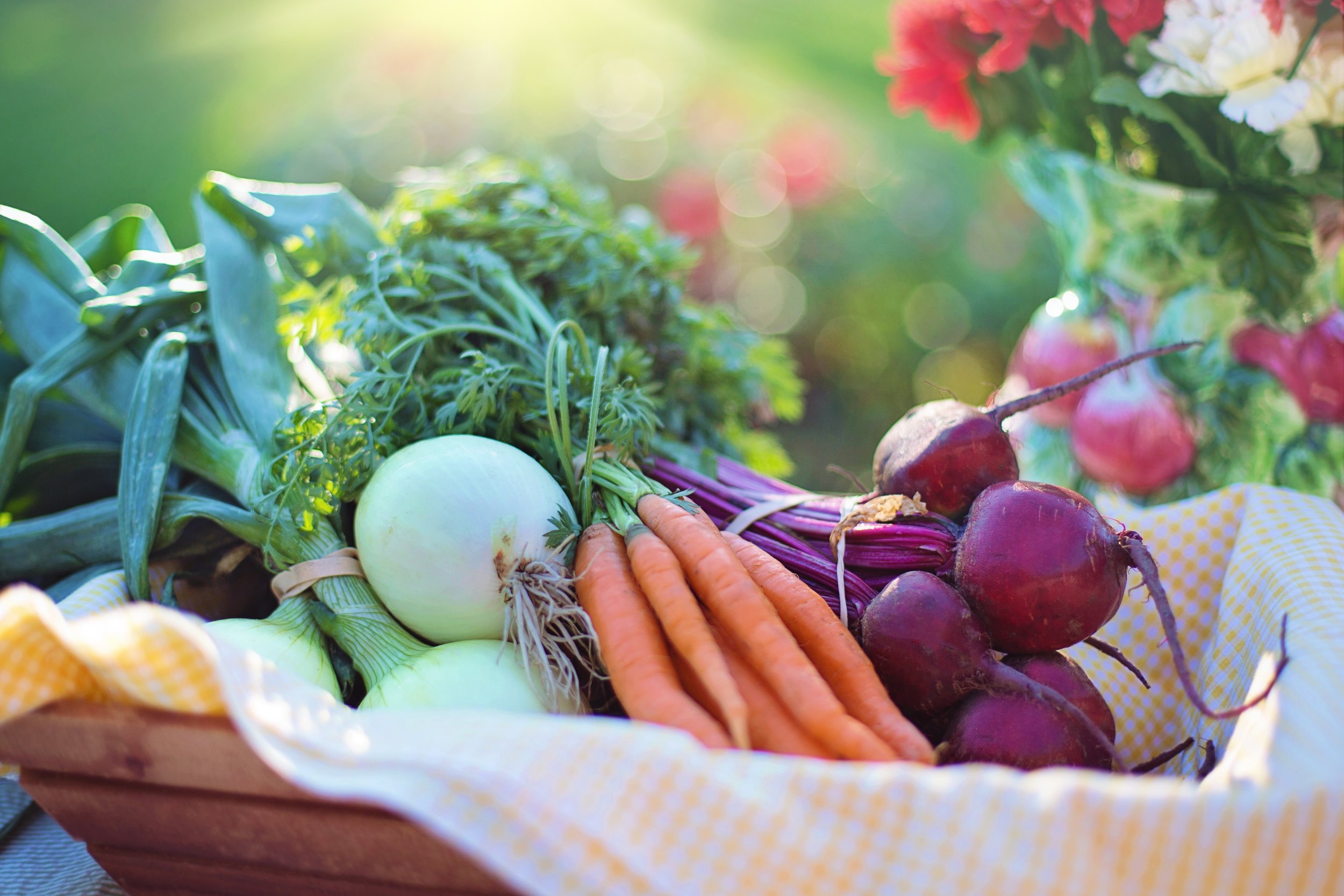Gut Health 101
Gut health is a hot and trendy topic right now. With new research constantly evolving and trendy food products + supplements on the market targeting gut health, it can feel a little bit overwhelming. Let’s break down the basics.
Gut Health 101:
The term “gut” refers to the gastrointestinal tract which consists of a long tube that starts at the mouth and ends at the anus including the esophagus, stomach, small intestine and large intestine. The gut microbiome refers to the community of microorganisms living in the gastrointestinal tract including bacteria, fungi and viruses. The human gut microbiome primarily consists of bacteria that reside in the large intestine.
Research on the gut microbiome and it’s role in health and disease is booming as researchers have discovered that the bacteria in the gut play a major role in the digestion and absorption of food, immune function, the regulation of inflammation, the production of important vitamins, hormonal balance, insulin sensitivity and mental health (1,2).
There is a lot that that we still do not understand about the gut microbiome, but research has shown that imbalances in gut bacteria (particularly low bacterial diversity) is associated with conditions such as irritable bowel disease, irritable bowel syndrome, autoimmune disease, obesity, type 1 and type 2 diabetes, inflammatory skin conditions and more (1). This tells us that a species-rich gut microbe community is beneficial.
Probiotics are defined as “live micro-organisms that, when administered in adequate amounts, confer a health benefit to the host” as defined by the World Health Organization. Probiotic organisms are super important for maintaining the balance of beneficial bacteria in the gut (3). Probiotics can be found in certain foods and supplements — more on this in a minute!
Prebiotics are non-digestible carbohydrates that act as food for the beneficial bacteria living in the gut and promote healthy microbe growth (1,4). Prebiotics can be found naturally in many foods.
Diet & lifestyle factors that may negatively impact gut microbial diversity include inadequate fiber intake, restrictive diets, high consumption of processed foods and simple sugars, stress, inadequate exercise, overuse of antibiotics, poor sleep, alcohol and smoking (1,5).
The bottom line is that the bacteria in the intestine play a major role in health & disease, and there are some key ways that we can support gut health and microbial diversity on a daily basis to promote overall health.
What can you do to support gut health and microbial diversity?
Eat more whole foods
The standard American diet -- high in refined carbohydrates, food additives, and saturated fat and low in fiber is associated with low levels of good bacteria in the gut and has been linked to an increased risk for developing functional digestive disorders. Research has shown that limiting processed foods and eating a diet based on whole foods can actually be protective against digestive issues and promote microbial diversity (6). Aim to include more vegetables, fruit, legumes, nuts, seeds, lean protein and whole grains.
Incorporate stress management practices daily
Stress can exacerbate digestive issues and has been associated with diarrhea, constipation and IBS. Chronic stress can cause changes in your gut microbiome, cause the gut to become more permeable, and impact gut sensitivity and motility (7). Find ways to incorporate stress reduction activities into your daily life whether it be walking your dog, meditating, journaling, or reading – do what works for you and make it a daily ritual! Yoga, cognitive behavioral therapy and acupuncture have also been shown to help.
Include more prebiotic rich foods
Prebiotics are resistant to digestive enzymes and are not absorbed in the small intestine. They are able to make their way to the colon where they stimulate the growth and activity of beneficial gut bacteria (4). Foods rich in prebiotics include garlic, onion, artichoke, under-ripe bananas and whole grains (oats, barley, rye, etc).
Include more probiotic rich fermented foods
Fermented foods add live cultures to the digestive tract which support the function of good bacteria in the gut, improve the digestibility of foods, and activate/support antioxidant pathways (8). Fermented foods include traditional whole milk yogurt, kefir, kimchi, sauerkraut and tempeh.
Incorporate a good quality probiotic supplement
The environment that we live in and the modernization of our food supply has negatively impacted our consumption of beneficial bacteria. A probiotic supplement is an important way that you can introduce new beneficial bacteria into the gut. It’s important to note that not all probiotic products are created equal. Many common probiotic supplements do not ensure survivability of the strains. In order to be effective, the bacteria needs to remain alive as it makes it’s way to the intestine. It is also important to make sure that you are choosing well-researched strains that support human health.
You can find some of my go-to probiotic recommendations in our Professional Fullscript Dispensary.
This is a reminder that the tips above are general, and are not substitute for personalized nutrition and health advice. If you’re interested in learning more about 1:1 nutrition counseling and getting personalized support, you can learn more here.
references
Valdes Ana M, Walter Jens, Segal Eran, Spector Tim D. (2018). Role of the gut microbiota in nutrition and health
Bull MJ, Plummer NT. (2014). Part 1: The Human Gut Microbiome in Health and Disease.
Markowiak P, Śliżewska K. (2017). Effects of Probiotics, Prebiotics, and Synbiotics on Human Health.
Slavin J. (2013). Fiber and prebiotics: mechanisms and health benefits.
Conlon MA, Bird AR. (2014). The impact of diet and lifestyle on gut microbiota and human health.
Viladomiu, M., Hontecillas, R., Yuan, L., Lu, P., & Bassaganya-Riera, J. (2013). Nutritional protective mechanisms against gut inflammation.
Qin, H.-Y., Cheng, C.-W., Tang, X.-D., & Bian, Z.-X. (2014). Impact of psychological stress on irritable bowel syndrome.
Rezac S, Kok CR, Heermann M, Hutkins R. (2018). Fermented Foods as a Dietary Source of Live Organisms.

